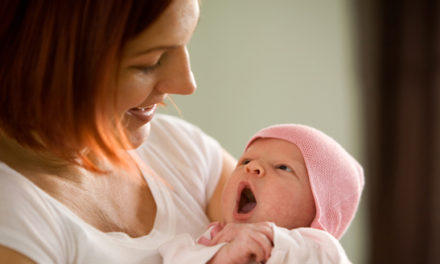Sometimes it’s not enough just to hear it. We rely on our eyes to be the bastions of truth, to spell it out, to ink it in.
So when it was reported last February that NFL running back Ray Rice had knocked his then-fiancé Janay Palmer unconscious in an Atlantic City, N.J. casino, allegedly dragging her limp body out of an elevator, there was disgust. Based on the report, but apparently without the benefit of video evidence, the NFL suspended Rice for just two games. While Rice was indicted on third-degree aggravated assault charges, Palmer declined to press charges, and the couple was married in March 2014. But a month later, the surveillance video was leaked, showing the world the irrefutable evidence of his brutality—his fist violently punching her in the face, knocking her into a handrail—and his callous indifference toward her afterward. Then there was outrage. Our eyes verified that what we’d heard was true, finally bringing into sharp focus a problem that has been festering under the surface of the most popular professional sport in America.
While he was ultimately suspended indefinitely, Rice is one of many professional athletes who has recently engaged in violence against women and been treated with leniency. Between 2000 and 2014, 48 NFL players were considered guilty of domestic violence under league policy, yet the league suspended players for just one game or no games at all in 88 percent of the cases. Just in the last 3 years, nine National Basketball Association (NBA) players have been charged with some form of domestic assault. The league has disciplined none of them.
Governing bodies of professional athletic associations often turn a blind eye and wait for convictions—or harder evidence—to impose punishments to avoid counter actions from the players’ associations, litigation, or, in some cases, removing their stars from their game. And when they do, it doesn’t always stick—Rice appealed his indefinite suspension, and it was overturned on November 28, which makes him a free agent, eligible to sign with any NFL team.
For weeks the public was captivated by the Rice incident and its aftermath, bringing domestic violence—and battered women—into sharper focus. The media and the public criticized NFL commissioner Roger Goodell for his initial minimal response, vilified Rice for his actions, and raised questions about Palmer, who initially apologized at a press conference for her “role in that night.”
Patricia M. Hart, MSW, LCSW, executive director of Womanspace, a provider of services to victims and survivors of domestic violence, emphasizes that any conversation about what may have led to their disagreement is irrelevant. “People do not have the right to abuse other people. I don’t care what she did; what [Rice] did was immoral and illegal. That’s what laws are for.”
But the public had a barrage of questions: Why would Palmer stay with this man? Why would she marry him? How could she forgive him? Women who were victims of domestic assault addressed “#WhyIStayed” and “#WhyILeft” on Twitter, changing the conversation about a very real problem in our society that goes much deeper than professional sports. Real Woman investigated the crime, and the victims, including Holly, who feared for the lives of herself and her children.
Holly’s Story
When Holly met her husband at 20 years old, she was an idealistic, positive young woman who brought stability, structure, and love to a man from a broken family. Within a few years, they were “calling each other names and throwing things,” and he was easily angered. After she lost a lot of weight, he’d accuse her of cheating or make other unfounded accusations. “The more miserable he got, the more he came after me.”
The serious beatings began when her daughter was 2 years old (now 16), and she was pregnant with her son (now 13). The occasional arguments gradually got worse, and he would “snap,” grab her, smack her, and even throw her against the brick fireplace.
It’s not uncommon for abuse to begin during pregnancy or when children are very young, says Ifeoma Aduba, executive director of A Woman’s Place, a domestic violence support organization in Doylestown, Pa. “At that time of life, there’s a shift happening. As kids come into the picture, an abuser gets less attention and feels like he’s losing the control,” she explains. The additional strain of children can trigger abusive behaviors during a time that should, in theory, be happy.
“Children really change the dynamics of everything,” Holly explains, noting that if it had been just she and her husband, she could have left. Hart says many women decide to stay with an abusive partner because of their family. “The kids may go to a certain school, they have this life, this family, and they love their dad. Moms stay because they believe it’s better for the children,” Hart says.
“We put on a show for everyone,” Holly confesses. “We were acting like the perfect married couple, but behind closed doors it wasn’t very pleasant. In fact, it was hell.”
 Holly hid the abuse, even visits to the hospital, from everyone she knew. “He knew how to hurt me without leaving [visible] marks,” she explains. After mustering the courage to approach her parents for help, they told her: “You’re just having an argument. You’re a wife, you’re a mother, you signed on for this, go back home.”
Holly hid the abuse, even visits to the hospital, from everyone she knew. “He knew how to hurt me without leaving [visible] marks,” she explains. After mustering the courage to approach her parents for help, they told her: “You’re just having an argument. You’re a wife, you’re a mother, you signed on for this, go back home.”
Home she went. Her husband’s outbursts intensified over the years, she says. One of the most serious attacks resulted in the loss of her third pregnancy. “One morning, I woke up after a beating and was saturated with blood … the baby was lost. I didn’t tell anyone. He told me, ‘Nobody will believe you. You have a nice house, a good job. Everyone knows you, and everyone thinks you have a good life.’”
She stayed with her husband for over 15 years, until this summer when he threatened to burn down the house with she and her children inside, Holly says. After setting aside money and lining up an apartment, Holly took the kids and left. A few weeks later, he threatened their lives again, she says. The police responded and brought A Woman’s Place brochure, explaining the organization could assist in getting her an attorney and a protection from abuse (PFA) order. A counselor listened to Holly’s story and assured her. “She said, ‘I believe you. The judge is going to believe you, and you’re going to be fine. No one here is going to hurt you or judge you,’” Holly recounts.
A Bucks County judge granted Holly the PFA until June 2015, and arrangements were also made for child support and custody at the hearing. Her husband occasionally visits with the children, but they continue to live with Holly in her apartment.
All Kinds of Abuse
Like other battered women, Holly couldn’t see a way out of her marriage. Leaving is just never that simple: An abused woman will leave a relationship approximately seven times before she leaves for good. Abusers often inflict a wide range of psychological assaults on their victims, including insults, blame, unfounded accusations, intimidation, humiliation, and social isolation, to name a few, which can become a vicious cycle (see box).
“A lot of damage can be done without even touching someone,” explains Aduba. “A whole new reality gets created, and you have no support. All that negativity about who you are and what others supposedly think about you, that’s incredibly paralyzing and affects your confidence.”
Often, a woman wants to believe her abuser will change this time, or she goes back because she loves him, believes in him, says Hart. She may be afraid he’ll hurt her. “When dealing with power dynamics, leaving the relationship shifts control in a dramatic way,” explains Aduba. “Leaving can be one of the most dangerous things someone does.”
Other times, the victim leaves but is faced with the many challenges that come with being on her own. Among other services, A Woman’s Place offers financial counseling to help women start saving money and setting goals. Abusers often control the money, leaving the victim no resources to break free. Financial dependence is the primary reason abused women stay or return to their relationship.
Abusers frequently leverage children and other family members to threaten or manipulate their partners. Abusers can use computers and cell phones to impose harm, stalking a victim’s Internet browser history, phone records, or text messages to monitor activity. Woman-space also provides safety-planning services, which address how to use technology cautiously, as well as how to reenter an abusive home with a plan for safe retreat.
“Sometimes it feels like there’s nowhere to turn, but if and when she manages to turn a corner, Womanspace is there.” The organization provided this support for Mimi, a 27-year-old from Trenton, N.J., who was in a relationship with a girlfriend who was extremely manipulative and controlling. “I found that it was really difficult to find access to care and help from people who understand the nature of a same-sex relationship,” Mimi says.
Although she was initially nervous to open up about the complex dynamics of the abuse, Mimi found clarity and strength after receiving both one-on-one and group counseling services. “Womanspace helped me feel less alone, that I wasn’t crazy,” she recalls. “I had gotten to such a low point—I felt worthless. Being surrounded by all these loving and caring counselors made me realize I have value.”
Mimi suffered from guilt because her partner had been a victim of incest and abuse. It was nearly impossible for Mimi to leave her struggling, suicidal girlfriend, even though she came to realize “what was going on just wasn’t right.”
“As a survivor of sexual assault and domestic violence, I know how many kids and people are dealing with this right in Mercer County. Womanspace really has given me the strength to keep fighting.”
The Best Response
Mimi sought an objective third party to listen to her struggles but felt friends seemed to have predetermined biases and a general misunderstanding of her situation. “People on the outside looking in tend to get upset or angry with you. They wonder why you aren’t leaving and can’t understand the internal struggles you may be going through,” Mimi shares. “If someone comes to you [about abuse], let that person know that you care about them, love them, and that they are a valuable individual.”
Hart says the most important thing is not to lose patience with a victim. It’s also not necessary to bombard her with offers of lodging, money, or other logistical assistance, which may overwhelm her. “Just ask, ‘How can I help you?’ Say, ‘I am so sorry this is happening to you.’ Maybe they’ve never heard that. It can be reparative for someone to hear it’s not her fault,” explains Hart.
Both Womanspace (NJ) and A Woman’s Place (PA) practice an empowerment model that helps bring victims out of isolation and victimization and into a safe network where they can thrive. Services include support groups, counseling, financial guidance, temporary housing, and assistance with law enforcement or legal proceedings over many months or years. The organizations also serve as a resource for family members or friends who may suspect abuse or have questions.
In the short term, the organizations provide crisis intervention 24/7/365, including hotline resources, shelter, or first response services at a hospital or police station. Their trained counselors educate women about what options are available, empowering them to make the best decision for their lives. “We never tell a woman what to do,” says Hart.
If a woman calls 9-1-1 during or after an altercation, the police will arrive to protect the victim and take her back to the police station if desired. A volunteer counselor will meet the victim there to listen and help with the process of getting a restraining order or pressing charges or, alternatively, provide safety tips for returning home.
Trained patient advocates through Womanspace also respond to the local hospital when victims of domestic violence or sexual assault seek medical care. Phyllis O’Neill, RN, MSN, FN-CSA, the nurse manager of the ER at Capital Health, explains that abuse is not reportable by outsiders, unless the victim is stabbed or shot. “If a woman comes in and says she’s been abused, it’s entirely up to her if she wants to press charges or not,” she explains, noting they encourage police involvement if a woman feels unsafe.
An abuse victim receives one-on-one, confidential nursing care that includes counseling and a full medical exam. If a sexual assault has occurred, STD meds and a “morning after pill” may be administered. After a rape kit is used to collect important evidence, such as photographs and specimen samples, the victim has up to 5 days from the day of sexual assault to have an exam.
Reporting the trauma of abuse—especially by the hands of someone she loves—can be the most difficult decision of a woman’s life. When Holly first drove to A Woman’s Place, she described the turning point as “completely surreal. That day, I didn’t know if I was being brave or stupid.”
Later, the action became much more clear. “I know I did the right thing because when I look in the mirror, I don’t see a scared person anymore.
“I see someone better—that old me, full of life.”







